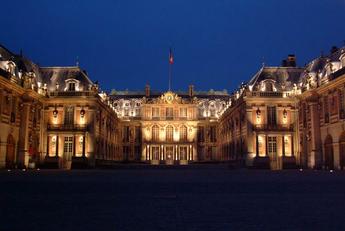The last European Nuclear Congress (ENC), held in Lille, France in October 2002, came at a difficult point for its organisers, the European Nuclear Society (ENS). The ENS itself was undergoing a period of restructuring – as the then ENS president Andrej Stritar wrote in NEI: “ENS did not escape the consequences of industry restructuring in the 1990s. Nuclear companies were merging and looking for savings, so funds for our main activities were scarce.”
Much of the organisation of ENC 2002 was shared between the outgoing secretariat based in Bern, Switzerland and the new secretariat in Brussels, Belgium. The move to Brussels tied the knot of the ENS’s marriage of convenience with European nuclear industry trade organisation Foratom, which also played a major role in the organisation of ENC 2002.
While successful on many levels, ultimately ENC 2002 did not bring in the number of delegates that were expected. In the ENS president’s report for 2002, Stritar wrote: “The original target was more than 1000, but, in the end, there were only 627 people attending. The overall trend of cost reduction in all sectors of the industry is probably the major reason for that. An analysis of the event was started immediately after it and the way to go forward in the future will have to be decided in 2003.”
The innovative programming of ENC 2002 appeared not to have the expected result on attendance numbers. In his closing remarks, Hans Forsstroem of the European Commission noted that such a wide programme could put people off attending. “It’s time to rethink the mixing of different areas,” he said adding: “Perhaps people working in waste disposal are not interested in meeting operators.” The Scientific Seminars were not well attended, but on the other hand, the European Energy Event organised by Foratom saw well over double the number of delegates than any other part of the meeting. But the real ‘meat’ of the meeting was to be found in the tried-and-tested Technical Conference.
This year’s meeting, to be held in Versailles, France on 11-14 December, is following the more traditional programming structure of the earlier ENC events, although it breaks with the four-yearly cycle of the meeting. Organised by the French Nuclear Energy Society (SFEN), the emphasis of the programme is clearly focused on technical papers covering the full range of nuclear topics: from mining, to nuclear fuel, upgrading, life extension, Generation III and IV reactors, research reactors, training, to waste management. As Bertrand Barré, the current president of the ENS and ENC 2005 chairman, puts it on the conference website: “Our programme committee has cooked for you a very comprehensive and tasty menu, which addresses all the current nuclear issues and provide much food for thought.”

The organisers of ENC 2005 are hoping to attract 700 participants this time, somewhat fewer than the number envisaged for ENC 2002 but more than the actual number that finally attended. Whilst the location at the Palais des Congrès is just a few metres away from one of France’s most well-known symbols of majestic extravagance, the Château de Versailles, the vision of this year’s Congress is focused on more down-to-Earth industry matters. According to Barré: “This conference will be devoted to the scientific and technical aspects of nuclear energy that support the most advanced industrial applications, in what really appears to be the dawn of a new nuclear era.”
Whether or not this approach will reverse the recent decline of the meeting remains to be seen. But certainly the outlook is promising, due to the more focused format, along with a much more positive feeling within the industry, compared with 2002.
Meet NEI at ENC 2005
Nuclear Engineering International staff will be headquartered at Stand M 06 Bis in the Sun King Hall for the duration of the meeting. Come by and meet the editor, Stephen Tarlton, and advertisement manager Scott Galvin.




